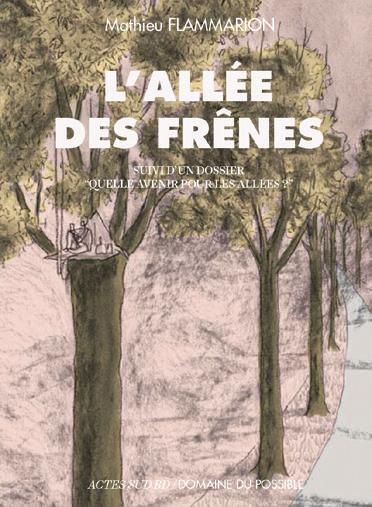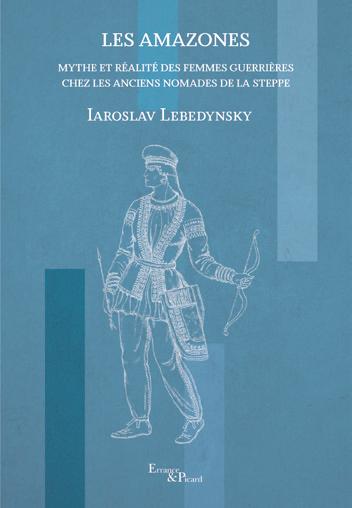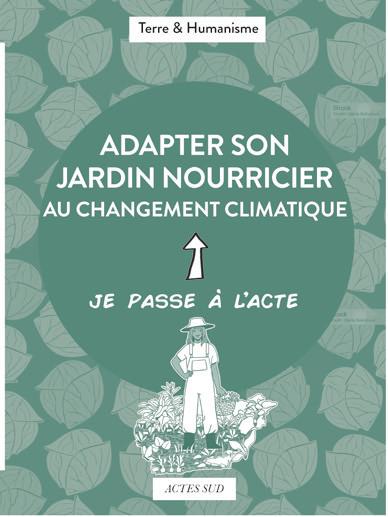march april 2025
0304 25

march april 2025
0304 25

400 pages - April 2025
Jean Lecointre, at the height of his powers of image manipulation, takes his hero on an introspective-fantasmagorical voyage to Barcarolle, the island of all possibilities. Will he rediscover the desire and the need to live? Poulenc, a ‘star’ researcher in his field, explores the human psyche. Thanks to drugs, he is able to reach levels of consciousness never imagined. The euphoria of success has turned into a nightmare. He became dependent and uncontrollable. In the grip of an existential crisis, the overwhelmed hero looks for a way out.
- There's nothing more for me to do here, but... I'm afraid it's going to hurt... Can you get me a gun?
- For people like you, there might be a place... an island... Barcarolle. Don't be late, the liner won't wait for you.
Born in 1964, Jean Lecointre is an atypical artist on the contemporary graphics scene. A student of Roman Cieslewicz, he draws his inspiration from dissecting all kinds of old paper to create strange atmospheres that evoke both the world of David Lynch's Eraserhead period and the destabilising associations of Luis Bunuel. In 1995, Jean Lecointre published his first illustrations for Libération. In 2003, he moved into animation with Turkish Delights, broadcast on Canal+. At the same time, he published Les Dents du loup (2002), Les Animaux domestiques (2007) and À la mode (2010) with Thierry Magnier. In 2019, the children's album Cache-cache cauchemars received the special mention Photo Album for Young People at the Bologna Fair.







L’Allée
suivi d’un dossier “Quel avenir pour les allées ?”
April 2025 / 19,5 × 26 cm / 160 pages

InthevillageofMahaut,anindependentmarketgardener,the avenueofhundred-year-oldashtreesthatrunsalongsidetheroadis toberazed.Thevillageisgoingtogetorganised,learnhowtofight backandgetbackintouchwiththehistoryofthesetrees,because thereishistory.MahautandXavierwilleachclimbintoanashtree, tiethemselvestoitandbegintheirfightinthebranches.A docudramathatputstreesbackatthecentreoftheactionandhelps usunderstandthepolitical,ecologicalandhistoricalissuesatstake.
Mathieu Flammarion is a librarian at the Bibliothèque nationale de France. He has already produced several fanzines in which he paints portraits of collective struggles. L'Allée des frênes is his first documentary.
>domaine du possible.
Martin Arnould, Au pied du barrage
>la compagnie des langues
Anna Arzoumanov, Juger les mots
> système terre
Nathanaël Wallenhorst, Contenir l’emballement bioclimatique
Bruno Villalba, Au-dessus du gouffre
> errance & picard
Iaroslav Lebedynsky, Les Amazones
Franck Monnier, La science face aux dossiers mystérieux de l’Égypte ancienne
Jérôme et Laurent Triolet, Souterrains du monde
Jean-Philippe de Tonnac, Le Temps minéral de la guérison
Nature
>mondes sauvageS
Jacques Blondel et al., La mésange, la chenille et l’asticot
Sylvère Petit, En attendant les vautours
>arts équestres
Mario Luraschi, Mille vies en une
Health
>questions de santé
Stéphanie Brillant, Quand le corps n'est plus d'accord
Anthony Berthou, Remettez du bon sens dans votre assiette
Self-Help
>je passe à l’acte
Terre & Humanisme, Adapter son jardin nourricier au changement climatique
> Domaine du possible

La lutte oubliée pour la Loire
sauvage Préface by Camille de Toledo
March / 14 × 19 cm / 240 pages
Between Larzac and Notre-Dame-des-Landes, there was the fight for the wild Loire. At the end of the 1980s, the government decided to build four dams on what is considered to be one of the last wild rivers in Europe. At Serre-de-la Fare, in the Haute-Loire, the dam threatened to swallow up twenty kilometres of magnificent gorges. It was then that a group of residents decided to occupy the site at the foot of the future dam. This book tells the story of this forgotten yet victorious struggle, which helped change the culture of river development and flood risk management in France. A crucial issue today in the face of climate upheaval.
Martin Arnould has been involved in protecting rivers since 1988. He took part in the ‘sos Loire vivante’ campaign to save Europe's ‘last wild river’. He is committed to saving migratory fish, in particular salmon and eels, and strives to reconcile the issues of biodiversity and renewable energy. He is a director of the association Rivières Sauvages.

> La Compagnie des langues
>
April / 10 × 19 cm / 160 pages
Freedom of expression and its limits are regularly at the heart of debate in France. When judges are called upon to assess disputed words, they are often described as censors and accused of being relentless. Such mistrust is based on a lack of understanding of the judicial process for assessing the limits of freedom of expression. Based on a ground-breaking interdisciplinary research project involving linguistic analysis of many French court rulings, this book seeks to shed light on and discuss the criteria on which they are based.
Anna Arzoumanov is a senior lecturer in linguistics and discourse analysis at Sorbonne University. A specialist in freedom of expression under the Ancien Régime and in contemporary times, she has published La Création artistique et littéraire en procès (Classiques Garnier, 2022).
March / 17 × 24 cm / 64 pages

For this first title in the ‘Système Terre’ collection, Nathanaël Wallenhorst, director of the collection, has chosen to translate ‘Les trajectoires du système Terre durant l'Anthropocène’, the seminal article by Will Steffen and his colleagues published in 2018 in the prestigious American journalpnas. The aim is to help people discover, share and comment on what scientists call ‘planetary limits and thresholds’, which, if crossed, will tip the Earth system into chaos... This scientific article will enable everyone to understand and integrate this fundamental concept if we are to contain bioclimatic runaway and move towards a ‘stabilised Earth path’. Thisknowledge is essential if we are to embark on an essential political, socialandeconomicpath.
Nathanaël Wallenhorst has a doctorate in educational science, environmental science and political science. He is Professor and Dean of the Faculty of Education at the Université catholique de l'Ouest. He works on the political, educational and anthropological implications of entering the Anthropocene and is the editor of an Encyclopedia of the Anthropocene - Pluriversal Perspectives (Springer-Nature) involving some 1,000 researchers from all disciplines.
Extinction du vivant et responsabilité politique
March / 17 × 24 cm / 80 pages

The collapse of biodiversity is still not being taken seriously by politicians. We are on the brink of an abyss... In the new ‘Earth System’ collection, Bruno Villalba presents an article from the journal Philosophical Transactions B of the British Royal Society, written by leading experts who make a clinical assessment of the catastrophic situation of living organisms on a planetary scale, not hesitating to point out the main culprits and propose possible political solutions. Bruno Villalba, a specialist in environmental political theory, comments on this seminal article so that decision-makers, capitalists and ordinary citizens can no longer pretend that this is not a priority.
Bruno Villalba is a professor of political science at AgroParisTech and a member of the CNRS Printemps laboratory (umr 8085). Since 2005, he has designed various university courses on ecology, sustainable development and ecological transition (Sciences Po Lille and AgroParisTech). His thinking is informed by his commitment to the environment.
> Système Terre
> New series
> Système Terre
> New series

Mythe et réalité des femmes guerrières chez les anciens nomades de la steppe
March / 14,5 × 21 cm / 208 pages
The Amazons, of Greek mythology, are a people of independent women warriors, living without men. Very early on, their legend was fuelled by information about the presence of armed women among the nomadic peoples of the Eurasian steppes. Myth and reality became intertwined. Today, an abundance of archaeological material attests to this phenomenon of women arming themselves, but its significance remains controversial. This second edition, completely revised, updated and much expanded, includes the most recent discoveries and debates.
Yaroslav Lebedynsky is a historian specialising in the ancient warrior cultures of the Eurasian steppe and the Caucasus. He has published numerous books and articles on these subjects. He teaches Ukrainian history at the Institut national des langues et civilisations orientales in Paris.
March / 17 × 24 cm / 272 pages

The architectural prowess of the ancient Egyptians is so impressive that some people find it hard to believe they could have been built without the help of advanced technology from an antediluvian or extraterrestrial civilisation! For the very first time, disturbing theories and mysterious artefacts are analysed and compared with scientific and archaeological data. They will lead us to question the brilliant civilisation that inspired them and the surprisingaspectsofarealitythattendstoescapeourunderstanding.
Franck Monnier is an engineer and a world-renowned specialist in construction and architecture in ancient Egypt. He is an associate member of the CNRS's 7041 Archéologies et Sciences de l'Antiquité joint research unit.
March /17 × 24 cm / 304 pages


Almost everywhere in the world, human groups faced with periods of lasting insecurity have dug, with great effort and with the help of picks, ingeniously organised underground refuges to disappear from the surface, shelter and defend themselves underground.
The authors invite us to discover these discreet monuments of unique architecture in France, Ireland, Bavaria and Austria, Benin, Cappadocia, Spain and Vietnam, as well as in Afghanistan, Lebanon and Gaza.
Jerôme Triolet is an engineer with a doctorate in chemistry. Laurent Triolet has a degree in natural sciences. For some forty years, they have been studying the underground world dug out by man.

April / 282 pages
‘Thefoodenteredabodywhereithadtofeelimmediatelythatitwas notwelcome,tosaytheleast,orwelcomedwithclosedarms.It'snot easytoimmerseyourselfinthesensationsofabodythathascutitself offfromthem Noheat,nocold,nosleep,nohunger:Jean-Philippe deTonnac'stextaimstodojusticetothis‘outofbody’experience thatisrestrictiveanorexianervosa. Althoughhesufferedfromitforpartofhislife,thistextisthestory ofhowhegradually‘tookonabody’,inotherwords,learnedto inhabitthisflesh.Incontrasttotreatisesonlightningcuresor miracletextsonpersonaldevelopment,hisaccountisanodetothe slow,subterraneantransformationsthatnonethelesschangethe courseofalife.
Essayist, journalist and publisher, Jean-Philippe de Tonnac has published several works, including interviews (N'espérez pas vous débarrasser des livres, with Umberto Eco and Jean-Claude Carrière, Grasset, 2010), biographies, essays and the Dictionnaire universel du pain (Robert Laffont, 2010), featuring 150 specialists from around the world. He has also taken an interest in healing practices in texts that have been a great success in bookshops (Le Cercle des guérisseuses, Guy Trédaniel, 2019).
50 ans d’enquête évolutive
304 pages - March 2025

A fascinating look at the blue tit and the researchers who study it Thisbook reveals the thousand and one tricks that evolution has found to adaptthislittlebirdtothemanyconstraintsof Mediterraneanbioclimates.
For more than fifty years, generations of researchers have been trying tounravel the countless mysteries hidden in the nests of this seeminglycommonbird: thestructure of itssong, thereasons foritsmaritalinfidelity...This approach reveals the beauty of science: the more we try to answer thequestionsthatlifeposes,the morenewquestionsemerge.
The four authors are researchers and research engineers at the Centre d'écologie fonctionnelle et évolutive - CNRS in Montpellier. Jacques Blondel initiated the programme to monitor blue tits and great tits in the early 1970s, and it is continuing thanks to new generations of young researchers, supervised by Anne Charmantier and Claire Doutrelant.
Dans les coulisses du film Vivant parmi les vivants
PréfacebyVincianeDespretPostface by Baptiste Morizot
April / 11,5 × 21,5 cm / 144 pages

Behind the scenes of the first inter-species film, Vivant parmi les vivants, director Sylvère Petit spent seven days trapped in a tiny blind waiting for the vultures to descend on the carcass of a mare, the star of the film, to shoot the main scene. Seven days of introspection bordering on delirium, always funny, fed by the philosophies of Vinciane Despret and Baptiste Morizot, interwoven with extremely prosaic and self-deprecating considerations on waiting, emptiness, cold and hunger.
Sylvère Petit is a wildlife photographer and filmmaker. This is both his first feature film and his first book.


Equestrian Arts

Une vie de chevaux et de cinéma
Mars / 14,5 × 24 cm / 464 pages
From encounters to opportunities seized or provoked, the unusual journey of a small immigrant in the 1950s who went on to become one of the greatest in his profession, making over five hundred films and rubbing shoulders with the stars. The adventures follow one another as he meets new people, travels, shoots, and seizes every opportunity to create a fictional account of a life lived at full throttle, during which the reader meets as many stars as horses, and revels in funny or moving scenes from life and filming anecdotes. Made up of exploits, projects and laughs, Mario Luraschi's life is like a Hollywood blockbuster for which Jacques Audiardwouldhavewrittenthedialogue.
Mario Luraschi (seventy-seven) is one of the world's most famous show and film horse trainers and equestrian stuntmen. He has trained more than 250 horses and taken part in 570 films.

March /14 × 20,5 cm / 224 pages
We've stopped listening to our bodies, imposing our modern lifestyles on them. Yet more and more of them are malfunctioning: minor inflammations, fatigue, pain that keeps coming back... Stéphanie Brillant is taking up the challenge of getting to the root of the problem and listening to the signals our bodies are sending us. The aim is simple: to use the body as a starting point for rethinking the way we live, interact, work and sleep... By incorporating contributions from medicine, sociology and journalism, the author conducts an accessible investigation that teaches us to live better with the bodies we live with...
Journalist, director, television presenter, producer and lecturer, Stéphanie Brillant has been working for seven years on themes linked to the liberation of human potential. She directed the documentary film Le Cerveau des enfants, un potentiel infini (2017) and has published three books with Actes Sud, including L'Incroyable Pouvoir du souffle (2021), which was a big hit in bookshops.

Remettez du bon sens dans votre assiette
41 préjugés déconstruits
par un nutritionniste
PrefacebyFrançois-RégisGaudry
March/16,5×22,5cm/304pages
‘Gluten is bad for your intestines’, “coffee is bad for your blood pressure”, “eggs are bad for your cholesterol” ... This book tackles forty-one of the most persistent nutritional prejudices, to finally disentangle the true from the false, in the unequivocal light of the most recent studies. Bread, apples, salmon, avocado, chocolate, cider vinegar, Tefal... With his usual clarity and pedagogy, Anthony Berthou helps us to understand how our bodies work, to decipher the jargon used by manufacturers and doctors, and to makeinformedchoicesaboutwhatweeat.
Anthony Berthou is a nutritionist. He promotes an integrative approach to nutrition among health professionals and in various universities. He is the author of several reference works, including Du bon sens dans notre assiette (Actes Sud, 2023) and Traité de la pleine santé par l'alimentation durable (Dunod, 2023). He is also an expert in sports nutrition, a former top-level triathlete and the nutritionist for several Olympic teams.
March / 14 × 19 cm / 64 pages

Climate change is an inescapable reality, as are its consequences for ecosystems. Frédéric Fortin and Arnaud Vens, trainers at Terre & Humanisme, invite you to act! Adapting your food garden to climate change is essential if it is to become resilient, robust and able to withstand current and future upheavals, while feeding itself sustainably. Rooted in the thirty years' experience of the Mas de Beaulieu educational gardens, this positive and motivating book takes you step by step through every aspect of this gardening revolution. Atmospheres, soils, seeds, water management, alliances with living organisms: every lever for action is explained in concrete terms, from soil structuring to plant cover, from shade to the new calendar.
Initiated by Pierre Rabhi, Terre & Humanisme has been promoting agro-ecological practices for thirty years. Passionate gardeners and agro-ecology trainers within the association, Frederic Fortin and Arnaud Vens are actively involved in the Mas de Beaulieu gardens in the southern Ardèche. They support various groups and organisations (Restos du Cœur, Habitat et Humanisme) as well as private individuals in their agro-ecological apprenticeships.


Connaître les plantes qui poussent en bas de chez vous
Wild plants also live in the city. They may not be as obvious or as attractive as the superb flowerbeds maintained by our city's parks and gardens department, but they are there, and they are fascinating. Yes, you have to make a little effort to spot them, but once you've started, you can see them everywhere: in the smallest crack in the pavement or wall, between the paving stones, in the gutters, among the rubbish. These warriors adapt to any terrain and deploy strategies to survive in this hostile environment, growing faster, lower... Laetitia Roux knows this wild urban flora inside out, and is campaigning for city-dwellers to learn to look at it and protect it. In five chapters, she explains why they are essential, how they manage to survive, how we can make their task easier and profiles 30 wild plants that are easy to spot around the home. Times are changing, and residents, town planners and architects are gradually realising the need to include nature in urban projects to create a sustainable ecosystem. But there's still a long way to go. So, let's take care of these conquering wild creatures - they may seem insignificant, but they are indispensable.
Laetitia is co-founder of Veìr Magazine, an independent print magazine dedicated to gardening, plants and biodiversity. For the past five years, she has been writing and editing articles to help city-dwellers (and others!) reconnect with nature, starting with a better understanding of the plants that surround them. Passionate about wild plants, she regularly attends field courses run by botanists in her region.

Pour des bouquets locaux et de saison
Plantingflowersonlytocutthembackmayseemcounterintuitive.Andyet thereareonlygoodreasonsfordoingso. Firstly,itavoidssupportingthecurrentflowerproductionsystem.InFrance, 85%ofcutflowerscomefromfaraway,andtheecologicalandhumantollis disastrous.ThesituationisnobetterinEurope. Secondly,growingflowersiseasy(mucheasierthangrowingvegetables)!You don'tneedmuchspace,youdon'tneedmuchtime,andyoudon'tneedmuch water.It'salsoagoodwayofdiscoveringtheseasonalnatureofflowers(no, rosesdon'tgrowinFebruary),aswellaslocal,ancientandoriginalvarieties. Finally,it'sTHEwaytogetuniquebouquetsallyearroundatalowercost. Obviously,thereareseveralthingsyouneedtoknow.JulieLaussatgoes througheachstageindetailandexplainsthespecificsofthiscrop.Startingwith thechoiceofspecies:vaselife,floweringperiod,stemlength,productivity...so manynewcriteriatoconsider!Shealsoexplainshowtocreateaspace dedicatedtothisparticularcrop,andthespecificgesturesyouneedtoknowto lookaftertheflowers,cutthemandpreservethem.Anavidgardener,shehelps uspreparethesoil,sowtheseedsandplanttheplants.
Julieistheco-founderofVeìrMagazine,anindependentmagazinededicatedto gardening,plantsandnature.A bitofa multi-tasker,sheisalsotheauthorof severalbooksonecologyandgardeninganda contentcreatorontheweb (@julie_pancakes).
Fine-arts
Sophie Calle, Catalogue raisonné de l'inachevé
Jacques Leenhardt, Le Brésil illustré
Music >actes sud musiques
Jérôme Bastianelli, Edvard Grieg
April / 19,6 × 25,5 cm / 272 pages

On her exhibition A toi de faire, ma mignonne at the Musée Picasso in Paris, Sophie Calle unveiled her unfinished ideas, which are also her failures. In this eventful collection, which reveals all the submerged aspects of a body of work spanning several decades, we find the main motifs of her work, such as chance, chance encounters and, above all, her key idea of incompletion as a result, trial and failure as corollaries of artistic action.
Since the late 1970s, Sophie Calle has been the subject of numerous exhibitions around the world. Alternately described as a conceptual artist, photographer, videographer and even detective, she has developed an instantly recognizable practice, combining text and photography to nourish a narrative all her own. She has just been awarded the Praemium Imperiale 2025 prize in Japan.










> ACTES SUD MUSIQUES

L’héritage de Jean-Baptiste Debret
April /17 × 24 cm / 144 pages
Official court painter to the King of Portugal, recently installed in Rio de Janeiro, Debret witnessed a historic upheaval: from a Portuguese colony, Brazil was becoming an empire. On his return in 1831, he published a sumptuous Voyage pittoresque et historique au Bresil. Through his personal approach, he sets the scene for a social and political question that goes beyond the usual exoticism of travelogues: how to build a nation out of a tragic history and battered populations?
Jacques Leenhardt is Director of Studies at ehess (Paris). He works on art and literature, particularly in Latin America. He is a specialist in the work of Jean-Baptiste Debret.

April / 10 × 19 cm / 208 pages
EdvardGrieg(1843-1907),Norwegiancomposerandpianistofthe Romanticperiod,isaparadoxicalfigure:oneofhismelodies,taken fromPeerGynt,isamongthebest-knowninclassicalmusic,yethis liferemainslittle-known.JérômeBastianelli'sbiographyfillsthisgap. ItrevealsthesingularjourneyofEdvardGrieg,whoseentirebodyof workliesatthepointofbalancebetweenGermanRomanticismand Norwegianfolklore.Writteninafluid,accessiblestyle,thebook weaveslinksbetweenthemusicianandliteratureaswellaswithother composersandalsoprovidesabetterunderstandingofthehistoryof nineteenth-centuryNorway.
A senior civil servant, writer and music critic, Jerome Bastianelli has published four biographies of composers with Actes Sud. He contributes to Diapason magazine and is a regular contributor to La Tribune des critiques de disques, broadcast on France Musique. He is also president of the Societe des amis de Marcel Proust, to whom he has dedicated two studies, two novels and numerous articles. Since 2015, he has been Deputy Director General of the Quai Branly - Jacques Chirac Museum. He lives in Paris.
EDITORIALDIRECTOR
Anne-SylvieBameule
Tel.:0033(0)490495685/as.bameule@actessud.fr
FOREIGNRIGHTS
IsabelleAlliel
Tel.:0033(0)490495669/i.alliel@actes-sud.fr
SandraMartel
Tel.:0033(0)488659035/s.martel@actes-sud.fr
SALES
ChloéBeaujouan
Tel.:0033(0)661866360/c.beaujouan@actessud.fr
ACTESSUD
LeMéjan PlaceNina-Berberova,BP90038 13633Arlescedex,France
Tel.:0033(0)490498691 Fax:0033(0)490969525
